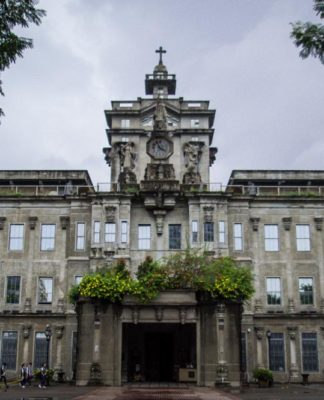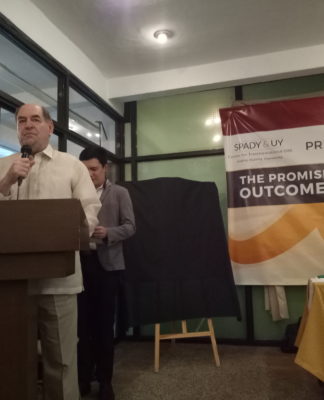DID THE butler really do it?
It’s the stuff of Dan Brown novels – the Pope’s butler was arrested by Vatican police last May 23 for stealing confidential documents, including letters and memoranda addressed to the Holy See.
Paolo Gabriele, Pope Benedict XVI’s butler of six years, was the surprise casualty of the Vatican’s lingering problem of leaks of confidential documents, now referred to as “Vatileaks.”
This came as journalist Gianluigi Nuzzi published a book titled “Your Holiness: The Secret Papers of Benedict XVI,” containing documents from a supposed group “whistle-blowers” composed of Vatican employees.
The secret papers expose a power struggle in the Vatican, but the apparent target is Cardinal Tarcisio Bertone, Vatican secretary of state and camerlengo of the Holy Roman Church, who had been criticized for gaffes in his handling of the Church’s affairs. None of the leaks, however, have besmirched the character of the Pope himself.
One of the documents leaked was the letter of former Vatican administrator Archbishop Carlo Maria Vigano to the Pope, begging not to be transferred to another post to be able to continue reforms in the Vatican bank and other offices. Vigano, who supposedly put a stop to excessive contracts entered into by Vatican offices, was named apostolic nuncio to the United States last October.
Gabriele was arrested after an oversight body dismissed the head of the Vatican bank, Ettore Gotti Tedeschi, for allegedly failing to fulfil his duty to clean up the institution. The bank, formally known as the Institute for the Works of Religion, is under scrutiny over allegations that it is being used for money laundering because of its status as an offshore outfit.
Bertone has defended himself, saying: “Attacks have always existed, in all times.”
“This time, however, it seems that the attacks are more targeted, sometimes also ferocious, biting and organized,” Bertone was quoted as saying by the news service of the Catholic Bishops’ Conference of the Philippine last June 6.
Pope Benedict addressed the scandal last May 30, saying: “The events of recent days about the Curia and my collaborators have brought sadness in my heart.”
But he is not about to shake up the Vatican. “I would like to renew my trust and my encouragement to my closest collaborators and all those who, every day, with faith, a spirit of sacrifice and in silence, help me to perform my ministry,” the Pope said.
The Pope added that people’s interpretation of the documents, amplified by the communications media, “goes beyond the facts and presents a completely unrealistic image of the Holy See.”
On the same day, the Vatican newspaper, L’Osservatore Romano, released an interview with Archbishop Angelo Becciu tackling the Vatileaks scandal.
“Let us reason: the Pope was not merely robbed of letters. Violence has been done to the consciences of those who turn to him as Vicar of Christ. An assault has been made on the ministry of the Successor of the Apostle Peter,” said Becciu, a top official of the Vatican Secretariat of State.
News reports have stated that Gabriele had promised to collaborate with the police by naming other “whistle-blowers.” If convicted, Gabriele may be sentenced to up to six years of imprisonment for aggravated theft unless the Pope pardons him.
Sought for comment, Fr. Rodel Aligan, O.P., dean of Faculty of Sacred Theology, said keeping Bertone in his post could have been “the lesser evil to be done.”
“If [Bertone] was removed because of those documents, then people would start saying that there is politics in Vatican or that the Vatican is divided. But these are internal matters,” Aligan said.
Whatever the intentions of the “whistle-blowers,” confidential documents should be kept confidential, lest they be misinterpreted or used against the Church, Aligan said.
“If you pre-empt a document, there is something unethical in it. There is a breach of privileged communications which is a subject matter nowadays. Do you read other people’s text messages? They are private. How much more with letters?”
Aligan also said the Church should be distinguished from the actions of its individual members.
“It has nothing to do with the faith. It has something to do with persons. Let us repeat the history of the Church: popes, cardinals come and go; some of them are good and some of them are bad. But the Church goes on. It doesn’t destroy the divinity of the Church,” he said.


















